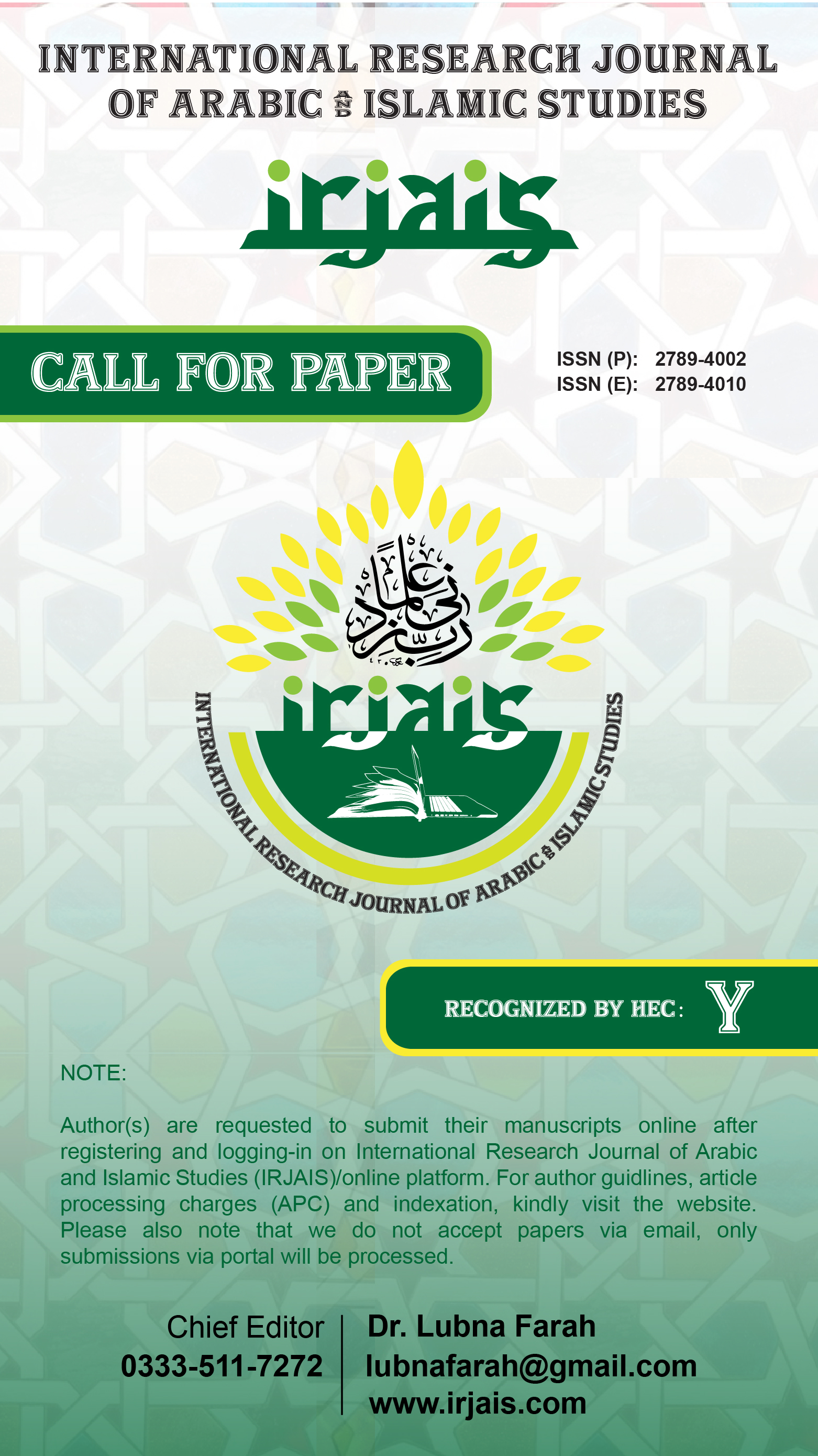عہد عالمگیری میں مشائخ نقشبند کا تربیتی منہج اور اسکے معاشرتی اثرات
The Training Methodology of Naqshbandi Shaykhs during the Alamgir Period and Its Social Impact
Keywords:
Naqshbandi order, Alamgir period, spiritual discipline, social impact, Sufi training methodsAbstract
The Alamgir period, marked by the reign of Emperor Aurangzeb Alamgir, witnessed a significant influence of the Naqshbandi Sufi order in the Indian subcontinent. The Naqshbandi Shaykhs, known for their strict adherence to the Shariah and emphasis on spiritual discipline, played a crucial role in shaping the socio-religious fabric of the time. Their training methodology was characterized by a deep focus on inner purification, silent remembrance of Allah, and the guidance of a Shaykh. This approach fostered a strong sense of community and moral integrity among their followers. The Naqshbandi Shaykhs also engaged in social welfare activities, promoting education, and resolving communal disputes, thereby contributing to the social stability and cohesion of the society. The present study explores the training practices of the Naqshbandi Shaykhs during the Alamgir period and examines their impact on the broader social and cultural landscape. By analyzing historical records and contemporary accounts, this research sheds light on the enduring legacy of the Naqshbandi order in promoting ethical conduct and spiritual growth.





